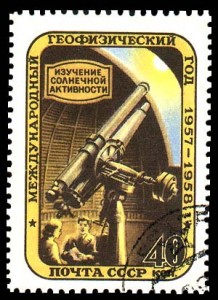One night at his dacha, Stalin looked up from his meal of bread, sausage, and smoked carp to consider a matter of celestial importance. With him in the study were Comrades Kaganovich and Molotov, who stood at the far window arguing about a constellation. The one said it was Cassiopeia, the other Orion. Stalin wiped the crumbs from his mustache, eager for the debate. Such matters had fascinated him since his youth in the seminary, when he’d often tilted back on his heels to puzzle over the stars. He never had been able to make sense of the heavens. Where other saw bears and scorpions and chained ladies, he saw only a messy splatter of light.
Molotov returned to the low table around which they had gathered, while Kaganovich circled the room, defending his position at great length and with great volume. He provided Molotov with Cassiopeia’ß mythological origins, and drew meaning between each of the bright dots in the sky. He gestured. He laughed at perceived errors in logic. And he even touched on phrenology, a philosophy he refused to endorse in the end, but one he still found worthy of mention, considering Molotov’s limited grasp of the sciences and the flat spot on the back of his head. Stalin was impressed. He grunted and gave short nods of approval. But Molotov could not be so easily swayed, just as he could not be bothered to fortify his defense. “It is Orion,” he said, simply and completely, before smiling as if only a fool would believe otherwise.
Kaganovich lunged at Molotov’s throat, causing …
Stephen Eirik Clark’s “Kamkov the Astronomer” opens with a scene that is uncannily similar to what apparently happened in the Hungarian Diet in 1468. In the diet Corvinus arranged and presided over a contest between two astrologers, Martin Bylica and his former student Jan Stercze, as they debated the proper technique for ascertaining the correct and precise time of birth used to calculate a natal horoscope, a practice called rectifying a geniture. In front of the assembled lords, Corvinus declared Bylica the winner of the debate and offered him a position at court where he remained until his death. Stercze’s future was, apparently, so promising (see this article for more on Bylica and Stercze).

Clark’s “Kamkov the Astronomer” imagines brilliantly all the details, the back story, and the personal interactions and motivations that the gaps in our historical evidence prevent us from knowing. I haven’t read the other stories in Clark’s collection, Vladimir’s Mustache and Other Stories, but the volume is worth the cover price just for “Kamkov the Astronomer.”